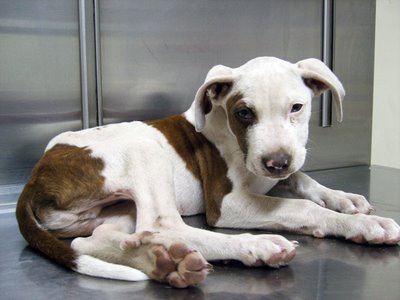How to Know If Puppy has Parvo

Let’s face it, everybody loves puppies. They are so adorable that you simply want to pick their soft, fragile bodies in your hands and play with them.
That is precisely why you would go out of your way to help a puppy that is suffering from some sort of a disease.
There are a lot of viral and bacterial diseases that can attack puppies. Among these diseases is canine parvovirus, more commonly known as parvo. It is a viral disease that is characterised by vomiting, diarrhoea and high fever. It can easily spread from one dog to another. Not only is it contagious, it can also be fatal.
Puppies are a common victim of parvo, which is why you should regularly monitor them for the symptoms of this disease.
Instructions
-
1
One of the first symptoms of parvo that may appear in a puppy after it has contracted the disease includes depression and lethargy. You will notice that the puppy is no longer very active and a considerable reduction in its playfulness. Another thing that you may observe is that it will sleep far more than before. These early symptoms of parvo will typically appear within 5-10 days after the puppy is exposed to the virus that causes the disease.
-
2
A puppy with parvo will experience frequent episodes of vomiting. It may also show signs of abdominal pain. You will notice that the puppy has its abdomen tucked in, mainly because of the contraction of the stomach.
-
3
If the puppy is really young, you may want to take it to the veterinarian and get it checked for the cardio version of parvo. It is an even deadlier form of the parvo virus that attacks the heart muscle of the newly born puppy, thus causing cardiac arrest and possibly death. The virus passes from the mother to her puppies and can be avoided by determining in advance if the mother is a carrier.
-
4
Watery diarrhoea is another common symptom of parvo. If the puppy excretes feces that appears more liquid than solid, then there is a strong chance that it has the deadly viral disease. Keep in mind that watery diarrhoea can cause the puppy to dehydrate very quickly.







